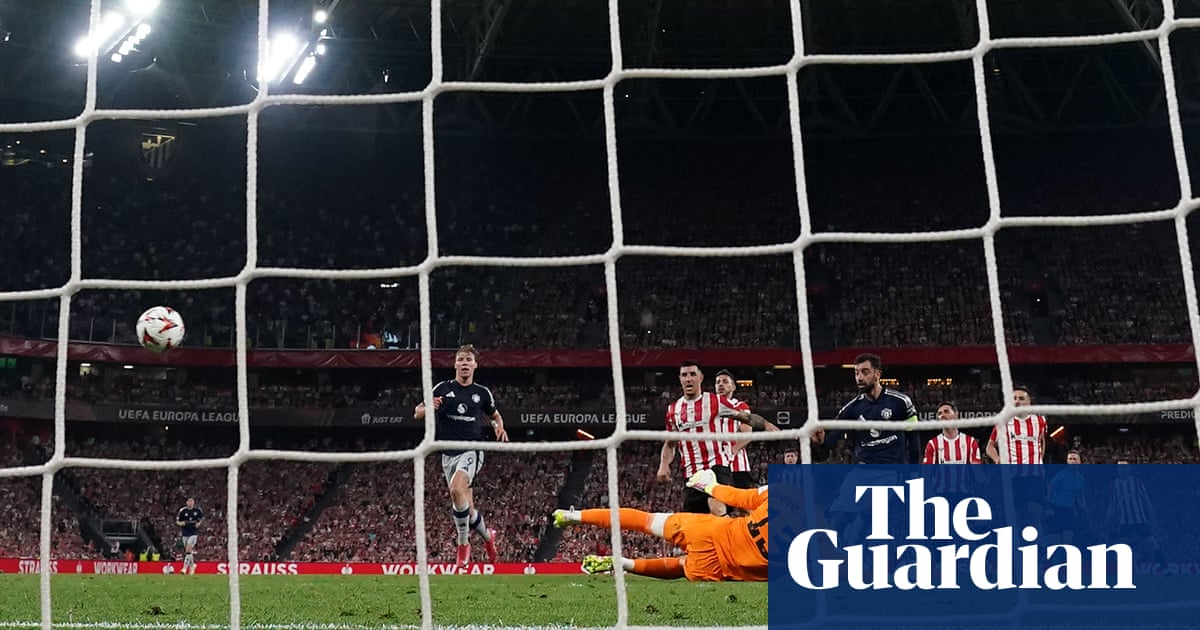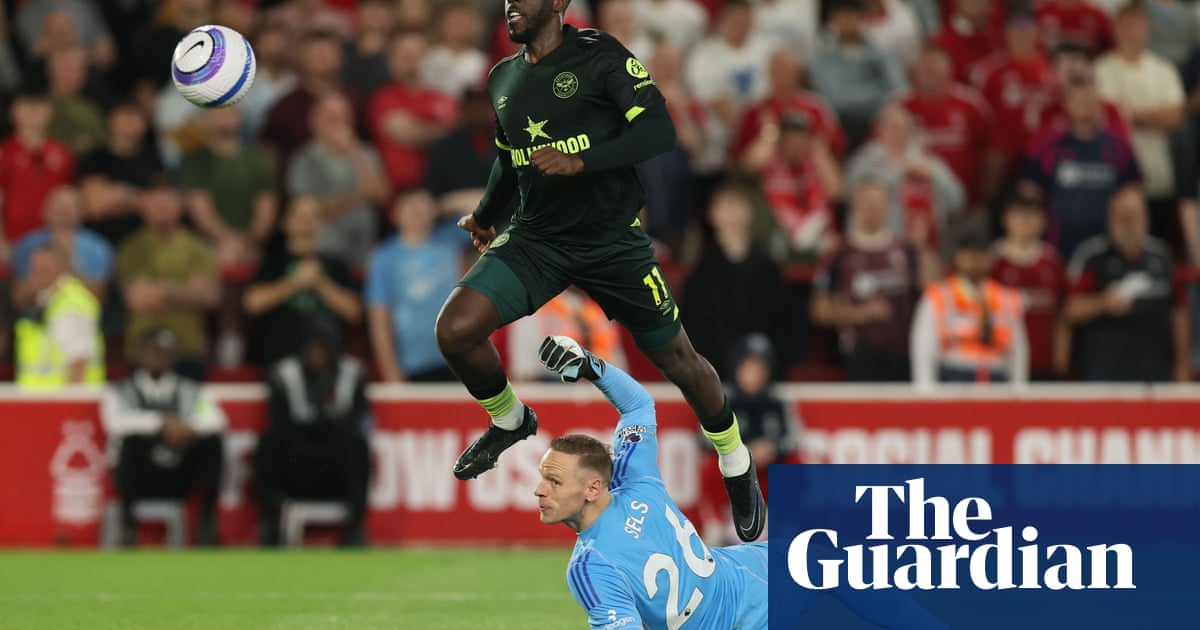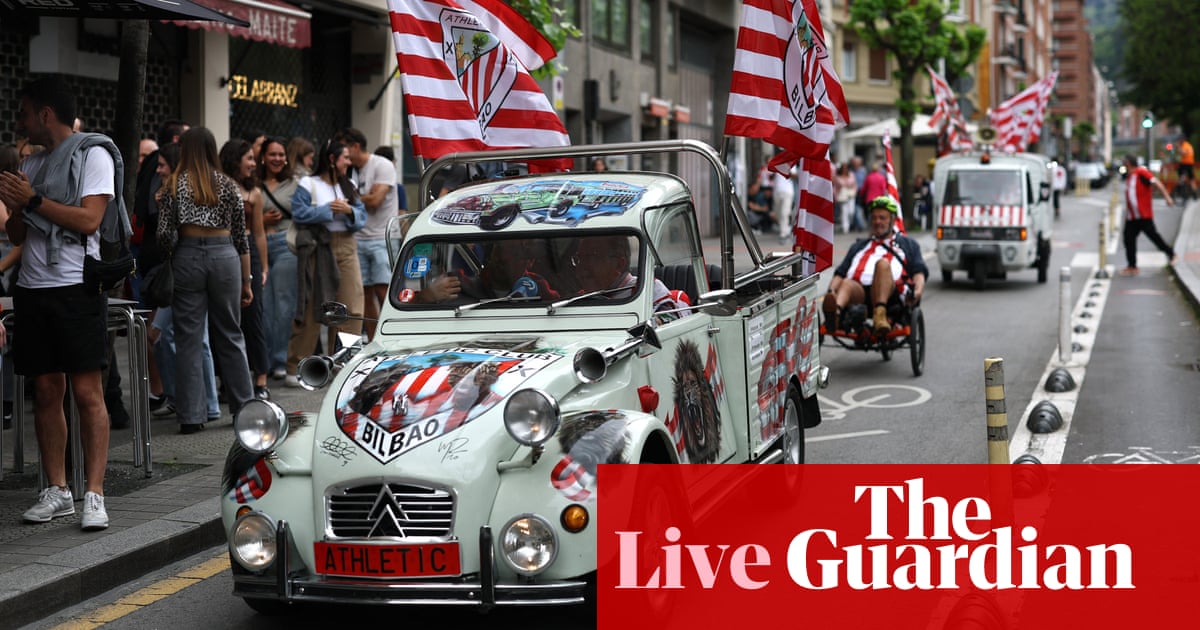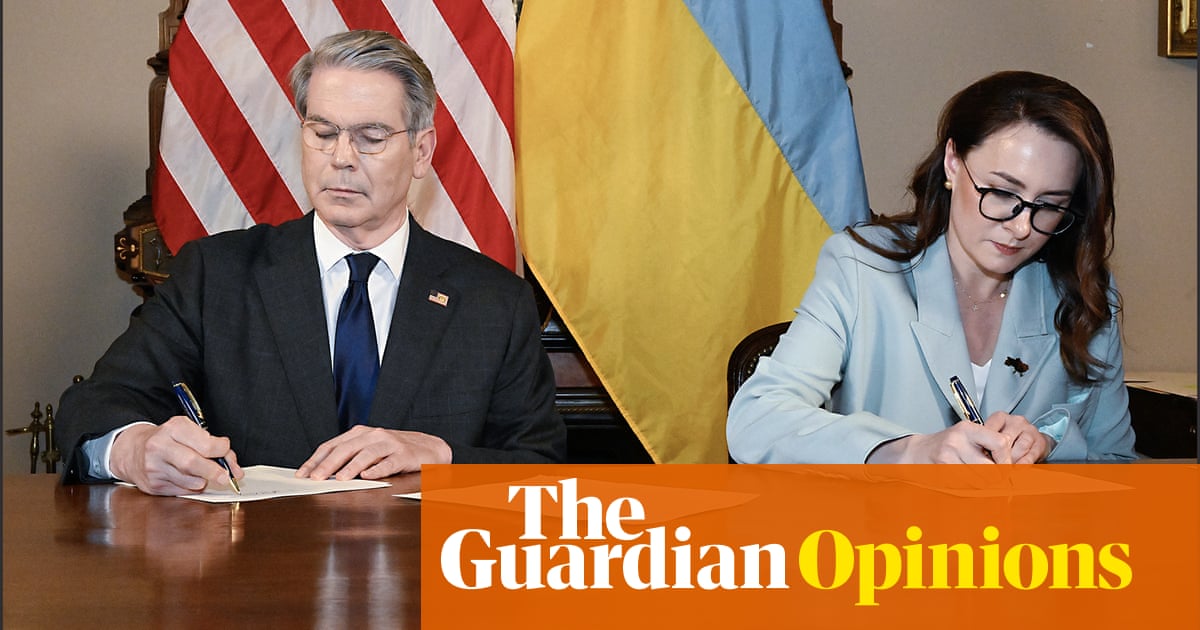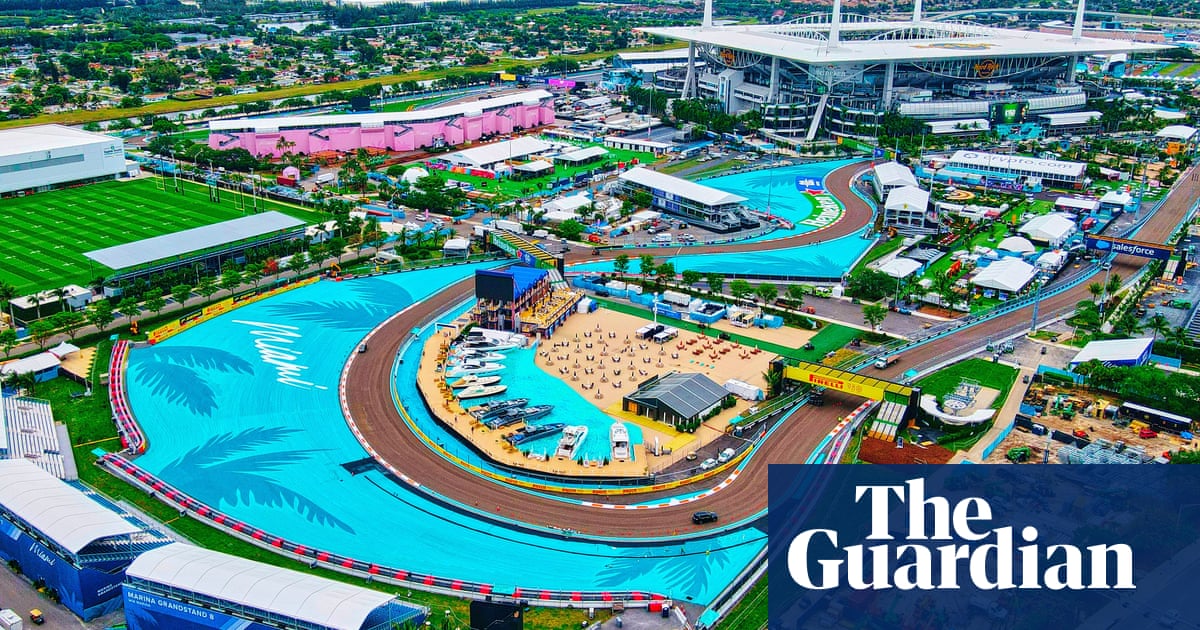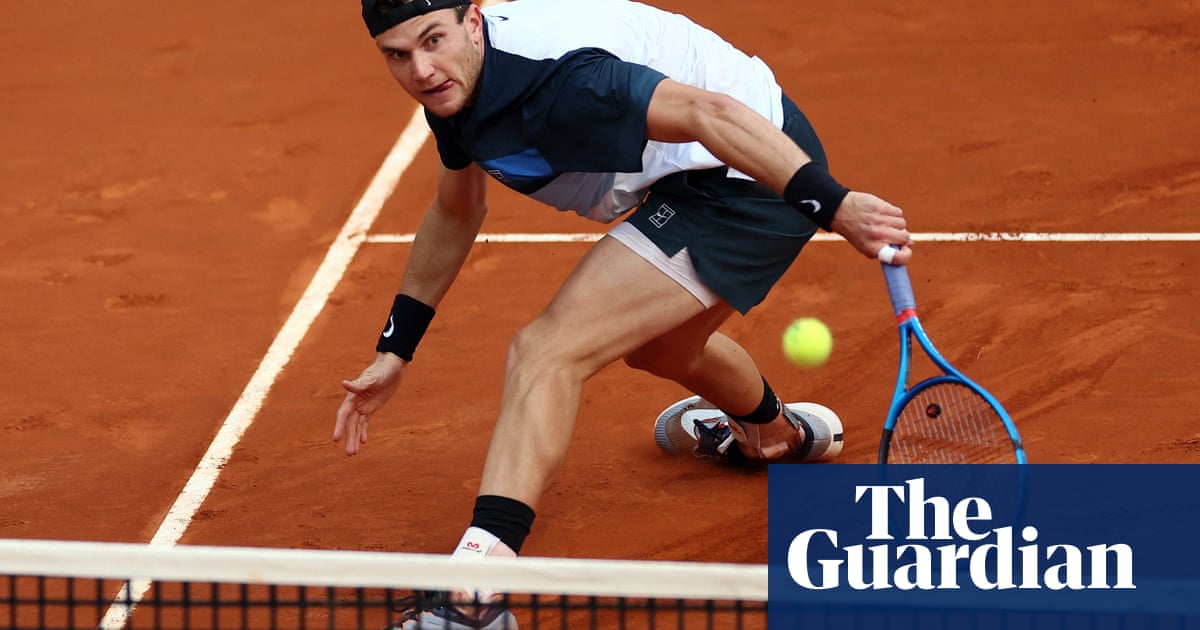Key events Show key events only Please turn on JavaScript to use this feature
Here’s Nick Ames’ report from Bodø on the “big dream” coming true for the Norwegian side:
No one is sure precisely when the “coffee table” tradition began, but consensus traces it back about 60 years. It would take a lot for one of the regulars not to show up. The time is almost 11am and cups are being laid out in the Aspmyra Stadion canteen for the Bodø/Glimt old boys’ daily catchup. In walks Ivar Bakke, who can count himself as the group’s elder statesman at 94. “One of the oldest people in Norway!” he laughs before sitting down. Tall tales are retold, memories sharpened in delighting over past and more recent glories; however far those stretch, everyone here knows what it has taken to bring their club to the barely fathomable territory of a Europa League semi-final.
The raconteur in chief is Jacob Klette, a sharp figure in his late 70s who made almost 400 appearances for a team that broke boundaries. “The northern part of Norway has always had to fight for its rights,” Klette says. “I played for Lyn, the best team in Oslo, in the late 1960s. You would open the newspaper and see adverts: ‘We have an apartment for rent, but not for people from the north.’ You felt disgusted to see it.”
Klette and many of his friends at the table would turn convention and outright prejudice on their head. Clubs from all the way up here, 75 miles inside the Arctic circle, were not allowed to play in the Norwegian cup until 1963. They were regarded as poor relations on and off the pitch.
Much more here:
They certainly seem to be a very cheerful bunch. Bonus points for the team wearing equally cheerful colours. Bodo/Glimt should be given a bonus goal for engendering scenes like this.

Lucas Bergvall has twisted an ankle and is out of the game. Richarlison and Dominic Solanke start a game together for the first time ever.
The teams!
Glenn Hoddle says he’s “excited” and thinks Spurs should “put the tie to bed” this evening. Have Spurs named the team to do it? Let’s find out!
Tottenham Hotspur: Vicario, Porro, Romero, Van de Ven, Udogie, Bentancur, Bissouma, Maddison, Johnson, Solanke, Richarlison. Subs: Austin, Whiteman, Danso, Tel, Gray, Kulusevski, Spence, Odobert, Sarr, Davies, Moore.
Bodo/Glimt: Haikin, Sjovold, Gundersen, Nielsen, Bjorkan, Fet, Hauge, Saltnes, Maatta, Hogh, Blomberg. Subs: Lund, Brondbo, Auklend, Moe, Sorli, Bro Hansen, Kjaer, Bjortuft.
Referee: Jose Maria Sanchez (Spain).
Hello world!
The miracle of Bodo/Glimt might become the story of the 2024-25 season in European competition (well, that and some 17-year-old in Spain). It’s just a marvelous, splendid thing, bright, luminous and warming as the city’s summer sun (which from the last day of this month until 13 July won’t bother setting at all; at the other end of the scale on 20 December it is due to rise at 11.35am and set again 49 minutes later. Admittedly calling it warming might be going a bit far – temperatures normally dip into single digits most days even in high summer).
The population of Bodo is around 55,000, and the Guardian has dispatched Nick Ames to the town (more from him shortly), perhaps to see if he can find anyone yet to be interviewed about the club’s recent success. It is potentially transformative: In the build-up to this game the Reuters news agency spoke Troels Sandreid, who runs the airport in Bodo, to see what kind of impact it was having on visitor numbers. “Bodo/Glimt‘s journey in Europe has undoubtedly helped increase interest in Bodo, including traffic to and from the airport,” he said. “Avinor [the company that runs the airport] has seen a steady rise in passenger numbers at Bodo Airport in recent years. Although it’s difficult to isolate the cause, it’s natural to imagine that Bodo/Glimt‘s success is a contributing factor.”
Well, that and the fact it takes 17 hours to drive there from the nearest big city, I imagine.
This is what Bodo looks like. Frankly it looks magnificent, though I appreciate this was taken on a good day. I like that it has attractions such as the Bodøsjøen Friluftsmuseum, whose name suggests there is such a severe local shortage of spaces that sometimes three or four words are having to share each one.

Inevitably, given that the town is home to the Norsk Luftfartsmuseum (the national museum of aviation), a former pilot had a significant hand in Bodo/Glimt’s emergence. Here’s the Associated Press:
How did an unheralded Norwegian team from a tiny town north of the Arctic Circle become one of the fairy-tale stories of European soccer?
For Bodø/Glimt, the transformation has been underpinned by a fighter pilot who developed mental techniques for his squadron before bombing missions in Libya.
Bjørn Mannsverk discovered a group of players exuding negative energy and prone to “a collective mental breakdown” when he was asked in early 2017 to join the backroom staff of a team that had just been relegated to Norway’s second tier.
His task as “mental coach” at Bodø/Glimt? To make players talk openly about their feelings, lower stress levels, change their attitudes and routines about things like preparation and nutrition, and remove the stigma around mental training.
Winning or losing no longer mattered. It was all about following a philosophy and culture established by Mannsverk, a former Royal Norwegian air force squadron leader whose military duties took him to Afghanistan after the 9/11 attacks and to Libya for a NATO-led intervention in 2011.
The results have been extraordinary.
After securing an immediate return to Norway’s top division, the team — based more than 1,000 kilometers (620 miles) north of Oslo in a fishing town, Bodø, with a population of around 55,000 — has captured four of the country’s last five league titles.
An active air force pilot for more than 20 years, Mannsverk and others in his squadron were the subjects of a mental training project in 2010 where the focus was on meditation and “every day repeating boring stuff, but with 100% attention.”
It meant that when he was in Libya the following year, he had the mental capacity to handle the dangerous missions he was asked to perform. His squadron’s mantra — “train as you intend to fight” — worked.
“Even though I got strong feelings when my first bombs hit the target and it was in infernal flames and fragments and everything,” he said, “it was like, ’My training said that it’s OK, this is happening, recognize that, but know I have to return and do my job.’”
With Bodø until recently having a NATO air base, it was simply a happy coincidence that Bodø/Glimt’s leadership came across members of the squadron at the same time as it was seeking a “silver bullet” — as Mannsverk put it — to improve the team’s mental conditioning.
A project was born and fully embraced by manager Kjetil Knutsen following his appointment in 2018.
Bodø/Glimt has never looked back.

 4 hours ago
1
4 hours ago
1

